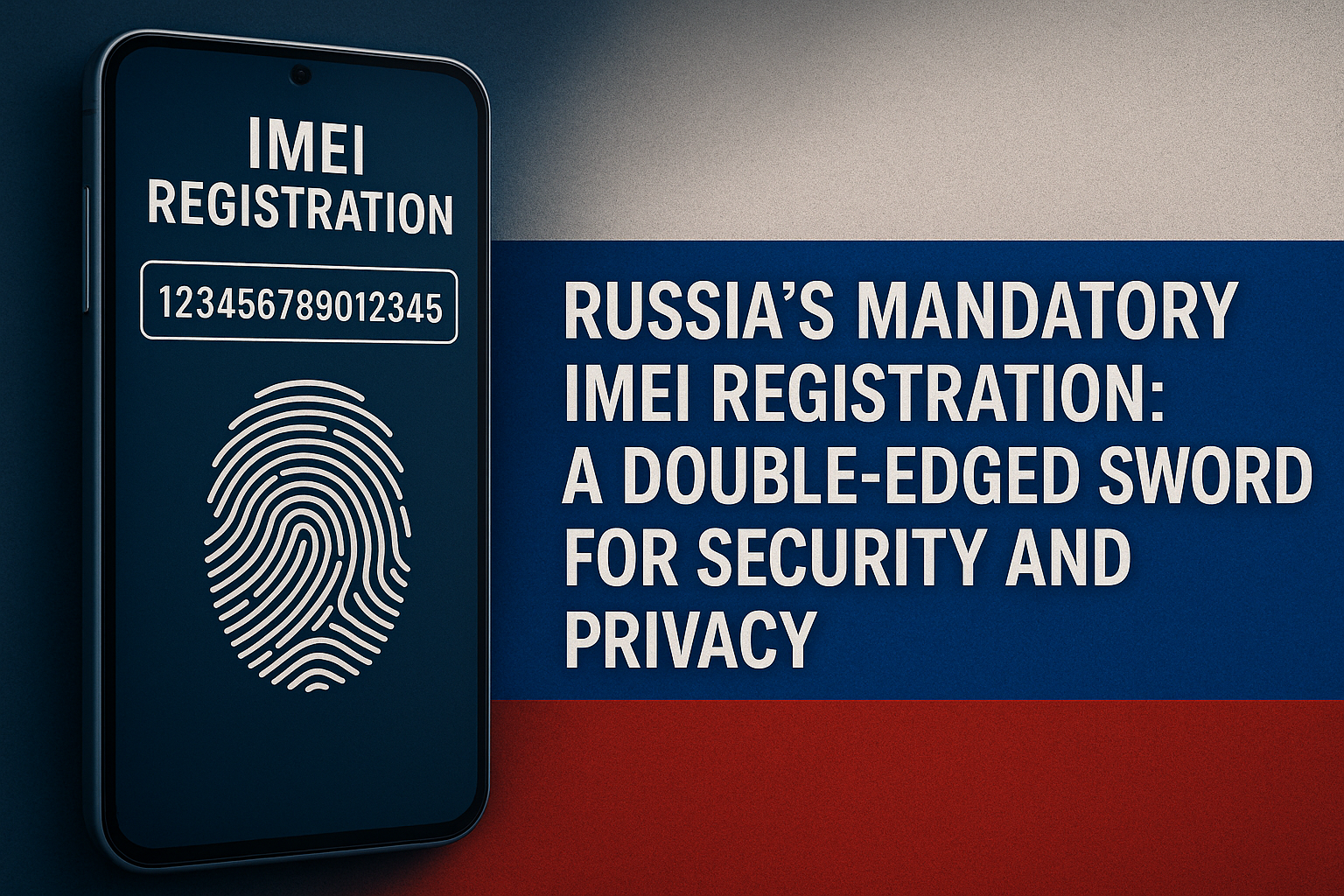On January 1, 2025, Russia implemented a sweeping policy mandating the registration of all International Mobile Equipment Identity (IMEI) numbers to telecom subscriber contracts. Foreigners were given until July 1 to comply. With enforcement now active, Russia joins a global trend of enhanced telecom surveillance — but does so in a uniquely aggressive fashion.
What is IMEI Registration?
An IMEI is a 15-digit code that uniquely identifies a mobile device. Under Russia’s new framework, telecom operators must link IMEIs to SIM cards within contracts. Devices not registered will have their service suspended. Registration is paired with in-person biometric data collection, all of which is fed into central databases accessible to Russian authorities.
Who is Behind It?
The initiative is led by the Ministry of Digital Development, with enforcement by Roskomnadzor, Russia’s federal media and communications watchdog. Major operators including MTS and Megafon are already collecting IMEI and biometric data. The initiative is deeply intertwined with Russia’s existing surveillance platform — the System for Operational Investigative Measures (SORM).
What is Driving the Policy?
The move follows the March 2024 Crocus City Hall terrorist attack. Officials cite national security, anti-fraud efforts, and import controls as justifications. New restrictions cap foreigners at 10 SIM cards and require biometric re-registration in person, underlining an overt shift toward state-centred control.
Security and Privacy Implications
Security gains include improved fraud prevention, theft deterrence, and enhanced traceability of malicious actors. From a national defence perspective, the measures may help Russia better monitor domestic threats.
Privacy losses, however, are significant. This policy enables always-on surveillance, targeting dissidents, journalists, and foreign nationals with little recourse. The combination of IMEI tracking and biometric linkage introduces significant risk in a country where data protection laws are opaque and enforcement is uneven.
Global Context
While IMEI tracking is not unique to Russia — many countries employ versions of this — the extent and intrusiveness of Russia’s policy raise alarm. When fundamental rights are weighed against state control, the Russian model invites scrutiny.
Final Thoughts
As an international technology and policy executive, I view this development as a case study in authoritarian data policy. The central question: Where should the line be drawn between national security and civil liberties?
How would your country balance this?
